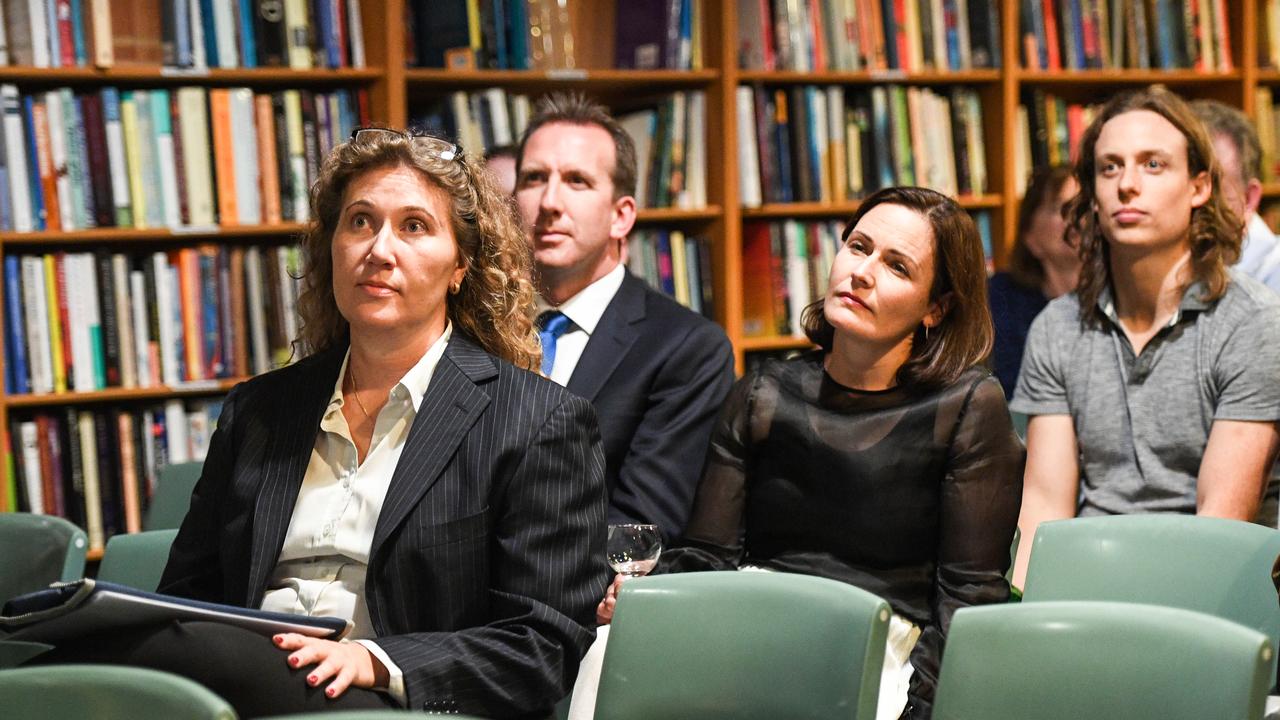RBA’s relationship with the government at a Lowe ebb
Anthony Albanese and Jim Chalmers appear to be on a political collision course with the central bank over inflation.
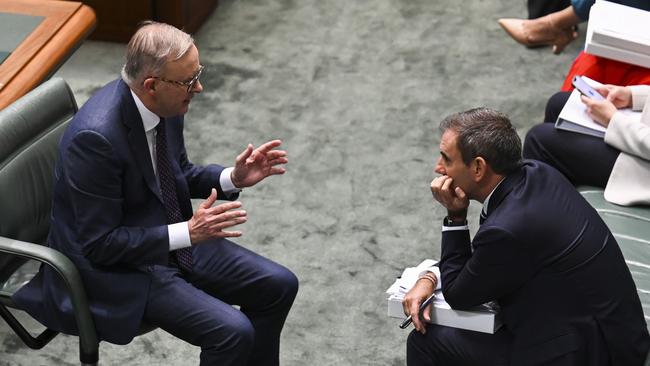
Anthony Albanese and Jim Chalmers appear to be on a political collision course with the central bank over inflation.
While a ninth interest rate rise on Tuesday was expected, the hawkish language from Reserve Bank governor Philip Lowe that several more were on the way was not. This aggressive posture clearly took the government by surprise.
The Prime Minister was out first thing the next morning claiming that as far as the government was concerned, inflation was slowing.
Assistant Treasurer Stephen Jones also took to the airwaves, jawboning the RBA board with the suggestion that, in the government’s view, Tuesday’s rate rise should be the last of them.
“Look, we think inflation has peaked and the information available to the government, the information I see, leads us to believe that inflation has peaked,” he said.
“Obviously, the Reserve Bank makes its decisions on the information available to it. It operates independently of government … We think what’s already in the system should do the job to ensure that we can dampen down demand. I’m hoping that if this is not the last it’s near the last of the rate increases.”
Lowe clearly has a different view. And the RBA will be worried about energy prices, a wage-price spiral to which it has repeatedly alluded, and will be nervous about the impact of fiscal policy. In other words, its key concerns are what the government is now doing in the economy rather than a war on the other side of the world.
Chalmers is talking a big game on fiscal responsibility, claiming inflation was its key priority in shaping the May budget. But the RBA would appear to be unconvinced that it is getting the right signalling from the government on fiscal repair and a commitment to return the budget to balance on an ongoing basis.
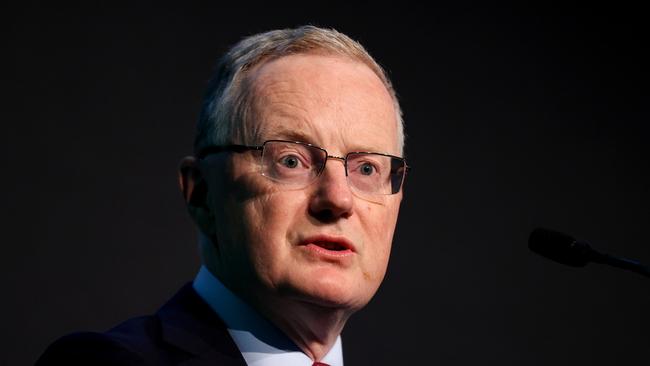
Economists are concerned about both the RBA and the government.
While there are signs of a slowdown in the economy, the inflation numbers are more ambiguous. The RBA is less focused on the peak of inflation than on how long the peak may persist. Its response on Tuesday was to raise rates further and warn that they would not only go up further, but it would leave them there for longer.
At the same time, the Albanese government is promoting a lift in wages and has already baked in spending commitments in the budget to ease cost-of-living pressures. Both are potentially inflationary.
The political risk for the government is obvious and twofold. The longer it goes on, the more likely it will be seen to be part of the problem and begin to wear some of the blame. With the dual mandate of full employment and inflation, the RBA will always put inflation first.
The second risk is that the RBA overshoots and damages the economy enough that not only does the government own the lagging effects of a higher interest rate environment but job losses and an economy gasping to stay out of recession.
Bill Shorten, a former Labor leader and now cabinet minister in the Albanese government, is clearly concerned that the politics might get away from them unless it begins to push back against the RBA and inoculate the government from further rate rises.
“So, the Reserve Bank, I hope, and some of the commentators who are urging them on to keep lifting the rates, they just need to take a deep breath,” Shorten said.
“You don’t want to cause bigger problems to Australians who are paying mortgages when the inflation problem is beginning to recede anyway.”
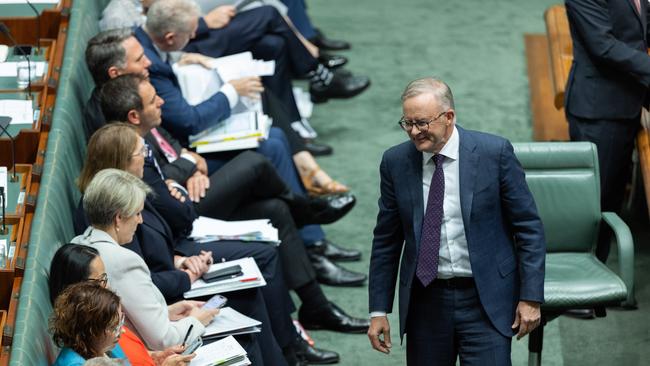
The Treasurer has also had a subtle chip at the bank. In an opinion piece published in The Australian on Friday, Chalmers made a pointed reference to the margin of error the bank was now working with in trying to tame inflation with a hammer.
“The job for the independent Reserve Bank is to get on top of this inflation without crunching the economy,” Chalmers wrote.
“Plenty of the factors influencing inflation and interest rates are outside the government’s control – like the war in Ukraine, the volatility in global supply chains, and the independent decisions of the Reserve Bank.”
Economist Chris Richardson told Inquirer that the RBA had only itself to blame for any political pushback coming its way. Politicians were bound to fill the vacuum if the central bank refused to explain its decisions to the community, in a timely and comprehensive way.
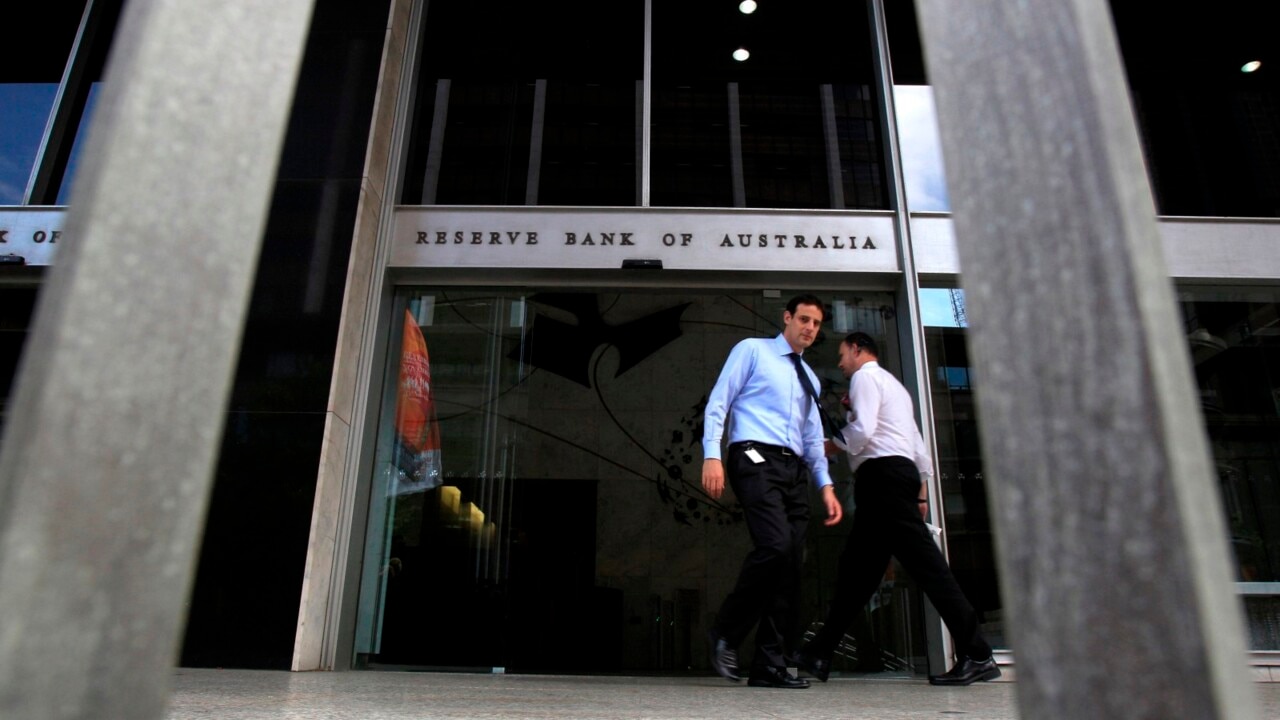
“The RBA has decided clearly that the fight against inflation will be harder and take longer than they thought … that’s a pretty important thing for a nation, where families have never been so much in debt and the views of the bank have never more important,” Richardson said.
“I don’t have a problem with the RBA updating its view. I recognise it’s hard for the RBA to get out and speak publicly, but you need more than a few paragraphs.
“If you have a vacuum, you have politicians jumping in and saying it’s not us, it’s the bank, and the opposition will jump in saying it is the government that has deserted the people.”
There is significant pain coming for the economy and households this year, given the unusually high mix of fixed rate mortgages, courtesy of Covid and record-low interest rates, which are due to expire this year. The RBA is operating very much in the dark.
Richardson believes the risk of a mistake from the central bank is rising. That means political pain as well for the Albanese government. And Canberra is becoming increasingly nervous that if Lowe gets it wrong, it is the government that will cop it.
“If the RBA gets it right, the government will still cop it, but not as much as if it gets it wrong,” Richardson said. “The ability to spend political capital to achieve a given thing requires you to have the political capital in the first place. At the moment the government is awash with political capital but the Reserve Bank is quickly drilling a hole into the bottom of the tank.”






